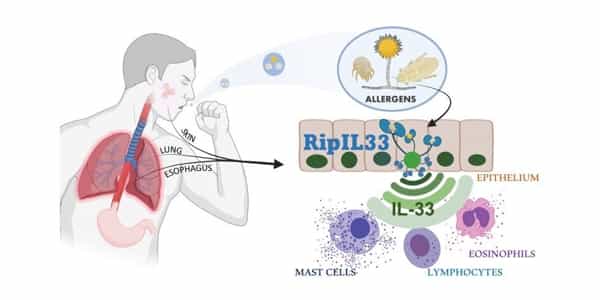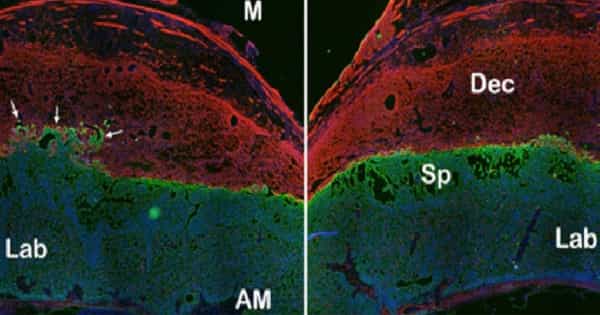Allergic inflammation is caused by an allergen-induced immune response and can result in a variety of diseases such as asthma, allergic rhinoconjunctivitis, anaphylaxis, urticaria, and atopic dermatitis. It is now clear that allergic diseases are complex disorders with multiple disease variants caused by various underlying cellular and molecular mechanisms.
A new study reveals new information about the body’s type 2 innate immune response system. New findings of a built-in rapid reaction system that triggers inflammatory responses when people are exposed to allergens like insects, mites, and fungi may also hold the key to helping more people manage their allergies in the coming years.
A study led by Cincinnati Children’s researchers and published in Nature Immunology reveals new information about the body’s “type 2 innate immune response” system. The discovery of a common biological response platform suggests that any new medication that can control the response could benefit people with a wide range of allergies.
“Disrupting this allergen sensing pathway could provide a unique opportunity to counteract type 2 immunity and alleviate allergic inflammation,” says Marc Rothenberg, MD, PhD, Director of the Division of Allergy and Immunology at Cincinnati Children’s and the study’s senior author.
Study reveals details about how the body’s “type 2 innate immune response” system works. By identifying a common biological response platform, the findings suggest that any new medication that can control the response could benefit people suffering from a wide range of allergies.
The research team included Michael Brusilovsky, MMedSc, PhD, Mark Rochman, Ph.D., Yrina Rochman, Ph.D., Julie Caldwell, Ph.D., Lydia Mack, MS, Jennifer Felton, Ph.D., Jeff Habel, Ph.D., Aleksey Porollo, Ph.D., and Chandrashekhar Pasare, DVM, Ph.D., in addition to Rothenberg.
Previous research had shown that when allergens penetrate the epithelial layer of mucosal membranes, they cause a similar IL-33 response. The mechanisms at work in the process were identified by the Cincinnati Children’s team.
Allergen sensing system
“New insights into the role of ripoptosome signaling and caspases in allergic inflammation enabled this breakthrough,” says Brusilovsky, the study’s first author.
The allergens, in particular, activate an interconnected set of cell death-inducing signals known as the ripoptosome. This signaling “platform” contains numerous components, but the key player in allergic inflammatory reactions appears to be a molecular switch called caspase 8. The pathway was named “RipIL-33” by the researchers because IL-33 is processed (ripped) by the ripoptosome.

Immunologists have discovered the mechanisms by which bacteria and viruses are sensed by the innate immune system in the last two decades, but how allergens are sensed has remained a mystery.
“The discovery of this unexpected mechanism is the most significant breakthrough in understanding how the innate immune system senses allergens to initiate a type 2 response and subsequent allergic inflammation,” says Pasare, one of the study’s senior authors.
Caspase 8 inhibition reduced the IL-33 response to allergen exposure in mice and limited bronchial inflammation in the lungs. Further research revealed that a similar process occurs in humans.
“We discovered that ripoptosome activation markers and mature IL-33 levels dynamically correlated with the degree of esophageal eosinophilia and disease activity in the human allergic disease eosinophilic esophagitis (EoE),” the study says.
Nature Immunology editors chose this paper to be featured on the cover of the September print edition. The next step is to confirm the RipIL-33 pathway in human allergic reactions and see if existing drugs or a new compound can safely disrupt the inflammation cycle.
The key to living with allergies, according to experts, is to be prepared. You can often prevent allergy symptoms from developing if you can predict when and where they will occur. This is why allergy prevention is so critical.
“Controlling allergy symptoms is critical in reducing complications like chronic sinusitis and asthma progression,” says Bernstein. Don’t be a slacker. Instead, collaborate with your doctor or a specialist, such as an allergist or immunologist, to develop an allergy pretreatment plan.
“You should be able to enjoy the outdoors, your home, your pets, and your job even if you have allergies,” Kelkar says. “You should be able to do whatever you want as long as you take the necessary precautions.”















